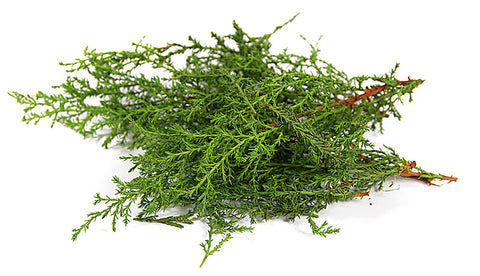Leylandii branches and hedge clippings can be composted in the HOTBIN.
Most composting advice states that Leylandii and pine needles are hard to compost in a traditional compost bin (around 10°c) taking anything from 2-5 years, however by hot composting in the HOTBIN at around 40-60°c these instead break down in around 90 days.
A Natural Coating – Harder to Digest

As with other harder to compost waxy/woody-based material, Leylandii have a natural outer rubber-like coating which makes it harder for bacteria to break them down making the speed of decomposition heavily focussed on the size of waste material (surface area) and the composting temperature (cold, warm or hot). Adding smaller pieces, as with most waste types will be more effective than larger bits which you may find in your final compost and will need returning into the top of the unit for a second process.
All conifers are tougher to break down so would recommend shredding/chopping where possible and adding in small amounts each week (about a bucket full each go) mixed with easy to digest waste.
When is Too Much, Too Much?
Often the biggest challenge with Leylandii (even those hedges with frequent cuts) is sheer volume of waste. Growing on average a meter every year, a large cutback results in many branches that are really too big to even shred, leaving you with the option of creating a static pile or taking some to the green waste council collection rather than overloading the HOTBIN with one type of waste.
Do Conifers Create Acidic Soil?
We were quite surprised to learn some experienced composters advise not to add Leylandii cuttings as they are apparently "too acidic". Although they can increase acidity levels in a compost bin temporarily, the finished compost will always revert to a neutral PH.
HOTBIN compost is usually PH neutral or slightly alkaline when finished as the composting bacteria grow and work at their fastest in these neutral conditions and can remain active in all but the most acidic conditions. If the contents of the HOTBIN become to acidic or equally to alkaline this will decelerate the composting process, another reason for adding them in small qualities with a good mixture of waste types
Care When Composting Leylandii
Many people suffer skin rashes when Leylandii clippings touch bare skin. The rash is a reaction to the weak organic acid – it is a ‘burn’. Some skins will be more sensitive than others so it is wise to wear gloves and clothes that cover any skin that is possible to come into contact when cutting Leylandii hedges.




